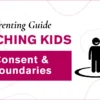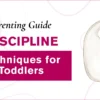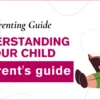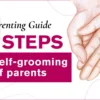Parenting’s a wild ride, isn’t it? The second you hold that tiny human, everything shifts—you’re suddenly in charge of shaping a life, and it’s equal parts terrifying and amazing. I’ve been thinking about this a lot lately, how it’s not just about keeping them fed or safe but about who they’ll become years down the road. That’s where this whole idea of parenting styles kicks in—a way to figure out how we guide, nudge, or sometimes push our kids toward being decent adults.
Brief History of Parenting Style Research
Importance of Parenting Styles
1. Authoritative Parenting
Introduction
Pros of Authoritative Style
Cons of Authoritative Style
2. Authoritarian Parenting
Introduction
Pros of Authoritarian Parenting
Cons of Authoritarian Parenting
3. Permissive Parenting
Introduction
Pros of Permissive Parenting
Cons of Permissive Parenting
4. Uninvolved Parenting
Introduction
Pros of Uninvolved Parenting
Cons of Uninvolved Parenting
What Modern Research Says
Fast-forward to today, and parenting styles are still a hot topic—research keeps peeling back layers Baumrind and Maccoby-Martin started. Modern thinkers, like
- Those in a 2019 study from the Journal of Child Psychology and Psychiatry lean hard into authoritative parenting, linking it to better mental health and adaptability in kids (Steinberg & Darling, 2019). They’ve got data showing lower anxiety rates and higher resilience, reinforcing it as a top pick. But there’s nuance now—culture matters.
- A 2021 paper in Child Development found that authoritarian styles can work in collectivist societies where obedience ties to family honor, though it still risks emotional strain (Lansford et al., 2021).
- Permissive parenting is getting flak for rising entitlement, per a 2022 Parenting Science review, yet some argue it fosters creativity in tech-savvy, self-driven kids (Grolnick, 2022).
- Uninvolved stays the outlier—modern studies tie it to higher dropout rates and behavioral issues, no surprise there (Hosokawa & Katsura, 2020). The takeaway? Context shapes outcomes, but balance—rules plus warmth—still rules.
Expert Opinion
Dr. Aisha Khan, a child psychologist with 20 years in family dynamics (and no relation to me, despite what my inbox suggests), weighs in: “Parenting styles aren’t static—they’re tools. Authoritative stands out because it adapts—firm when it needs to be, soft when it counts. Authoritarian parenting can produce results, but at a cost to emotional growth kids can’t afford today. Permissive has its charm, letting kids breathe, but without guardrails, they drift. Uninvolved? It’s a void—kids need presence, not absence. My advice: Aim for structure with heart. Watch your child, tweak your style, and don’t be afraid to mess up—it’s how you both learn.” Her take aligns with modern evidence—flexibility and connection beat rigid extremes every time.
My Opinion of Parenting Style
Parenting styles aren’t a rulebook—they’re a mirror. Baumrind gave us the map, Maccoby and Martin filled in the edges, and today’s research keeps it real: how you parent shapes who your kids become. Authoritative offers balance, authoritarian demands order, permissive gives freedom, and uninvolved leaves gaps. Each has its pull, its pitfalls. For “parenting styles guide” seekers or those chasing “effective parenting techniques,” it’s about finding what fits your family, your values, and your kid’s quirks. Modern thinkers nudge us toward warmth with boundaries, but it’s your call. Reflect, adjust, keep going. You’re building more than habits—you’re crafting lives. Dig into our site for more “child development strategies” if you’re hungry for it—I’m off to wrestle a sock drawer, but I’ll be back.







